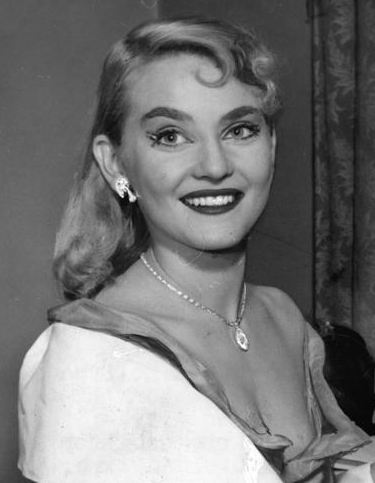Diane Cilento (Diane Cilento)

Diane Cilento was born in Mooloolaba, Queensland, Australia. Her parents, Sir Raphael Cilento and Phyllis, Lady Cilento (née Phyllis Dorothy McGlew),[4] were both distinguished medical practitioners in Queensland. Her paternal great-grandfather was Italian. Her maternal grandfather was merchant and exporter Charles Thomas McGlew. At an early age she decided to follow a career as an actress and after being expelled from school in Australia, was schooled in New York while living with her father. She later won a scholarship to the Royal Academy of Dramatic Art (RADA) and moved to England in the early 1950s. After graduation, Cilento found work on stage almost immediately and was signed to a five-year contract by Sir Alexander Korda. Her first leading role in a movie was in the British film Passage Home (1955), opposite fellow Australian Peter Finch. She soon secured roles in British films and worked steadily until the end of the decade. In 1956, Cilento was nominated for a Tony Award for Best Supporting or Featured Actress (Dramatic) for Helen of Troy in Jean Giraudoux’s Tiger at the Gates. She was nominated for the Academy Award for Best Supporting Actress for her performance in Tom Jones in 1963 and appeared in The Third Secret the following year but she allowed her film career to decline following her marriage to actor Sean Connery, the second of her three husbands, to whom she was married from 1962–1973. They had one son, the actor Jason Connery. She also had a daughter, Giovanna, with her first husband. Cilento has stated that she was beaten unconscious by Connery in their hotel room during filming of The Hill.
In Connery’s James Bond film You Only Live Twice, she doubled for her husband’s co-star Mie Hama in a diving scene because Hama was indisposed. She starred with Charlton Heston in the 1965 film The Agony and the Ecstasy, and with Paul Newman in the 1967 western film Hombre. In 1985, Cilento married Anthony Shaffer, a playwright, who wrote the script of The Wicker Man; she met him when she appeared in the film in 1973 and he joined her when she returned to Queensland in 1975. Cilento continued working as an actress, in films and television; in the 1980s, she settled in Mossman, north of Cairns, where she built her own outdoor theatre, named “Karnak”, in the tropical rainforest. The venture allowed her to participate in experimental drama. In 2006, Cilento released her autobiography, My Nine Lives. In 2001, she was awarded the Centenary Medal, for “distinguished service to the arts, especially theatre”. Diane Cilento died of cancer at Cairns Base Hospital on 6 October 2011, the day after her 78th birthday. She is survived by both her children. A collection of items from her estate was donated to the Queensland University of Technology and is housed in the library.
Born
- October, 05, 1933
- Australia
- Mooloolaba, Queensland
Died
- October, 06, 2011
- Australia
- Cairns, Queensland
Cause of Death
- cancer
Cemetery
- Highgate Cemetery (East)
- Highgate, London, England
- United Kingdom



